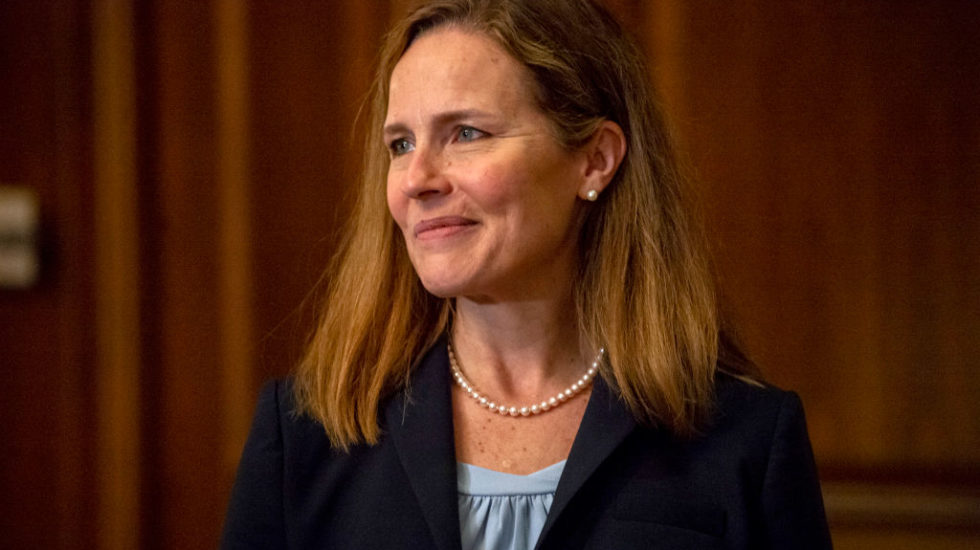Republicans controlling the U.S. Senate seem confident that they can get their conservative Supreme Court nominee, Judge Amy Coney Barrett, onto the high court bench before the coming election on Nov. 3.
But doing so, reports Politico, “will require essentially a perfect confirmation process featuring almost no errors from Barrett and no slip-ups in the Senate.”
And speed can be the enemy of perfection.
The confirmation process normally plods along. This time, it’s being compressed to meet the deadline, just five weeks away.
So Senate Republicans are in a rush; by Wednesday night Barrett will have met about a third of them in just two days.
“If Barrett can stay on track, she will likely receive a committee vote on Oct. 22 and then a floor vote just days after. Even a short delay could push the confirmation past the election, which would be a major blow to Republicans,” Politico says.
On the other side of the Senate aisle, Barrett is getting shorter shrift.
“With Republicans plowing forward — a reversal from 2016 when they refused to move Merrick Garland, then-President Obama’s final Supreme Court nominee — Democrats are under pressure from progressives to play hardball,” says The Hill.
Barrett’s strongly held religious views (she’s a devout Roman Catholic) are one concern of her opponents, who foresee a potential church-and-state conflict when cases involving abortion or health care come before the high court.
Many of the most prominent Democrats are refusing to give Barrett even a courtesy meeting, including Sens. Chuck Schumer, the Minority Leader; Elizabeth Warren of Massachusetts; Richard Blumenthal and Mazie Hirono, members of the Senate Judiciary Committee; and Kirsten Gillebrand of New York.
Warren said on Tuesday that Democrats should “treat this nomination like the illegitimate power grab it is.”
On the other hand, this is the Democratic Party, which rarely marches in lockstep on anything — so some senators are open to meeting with Barrett, even if it’s only a phone conversation.
They include Dick Durbin of Illinois, a senior member of the Judiciary Committee. and New Jersey’s Cory Booker, who says he’ll ask Barrett to recuse herself if there are high court arguments over the presidential election.
Still others have not said what they’ll do, including the top Democrat on the Judiciciary Committee, Dianne Feinstein — and vice presidential nominee Kamala Harris.
Going in to Tuesday night’s Trump-Biden debate, there was widespread agreement that Barrett’s fast-tracked nomination would be one of the evening’s main events.
It didn’t work out that way.
Barrett came up at the start of the debate, with President Trump asserting in response to a question that Republicans have the right to push her nomination through the Senate before Election Day, simply because they currently have the political power to do so, reports USA Today.
“We won the [2016] election. Elections have consequences,” Trump said. “We have the Senate, we have the White House, and we have a phenomenal nominee.”
Joe Biden said American voters should have a say about that, so “We should wait and see what the outcome of this election is.”
Later, Biden said that because of Barrett’s conservative views, her nomination puts the Affordable Care Act (Obamacare) and abortion rights “on the ballot” in November.
Biden later ducked a question about whether he’d back adding more justices to the high court if Barrett gave it a 6-3 conservative majority.



